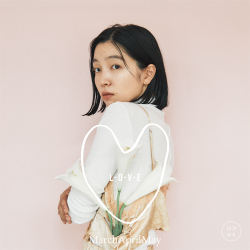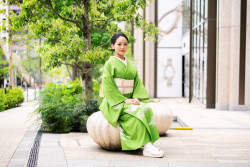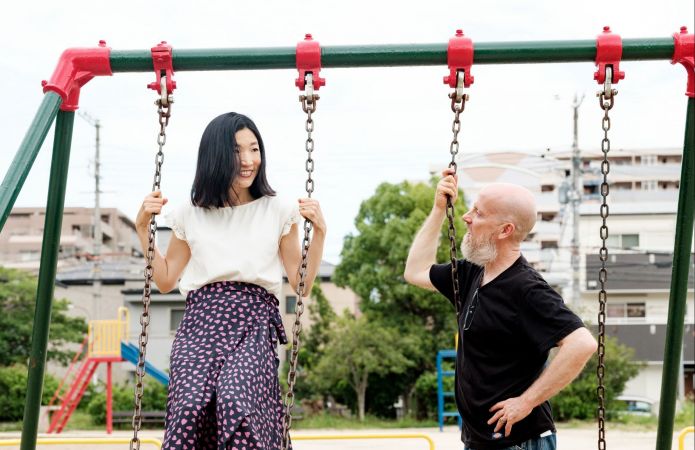
October 11, 2022
Found in Translation
Tackling Japanese literature as a couple, one line at a time
“You suffer, and only through that suffering will you be shown the answer. A person’s nobility lies in having oneself suffer. Everybody prefers being satisfied, even a beast.”
A wise quote from Ango Sakaguchi’s Wind, Light, and the Twenty-Year-Old Me, translated by Doc and Reiko Kane. This erudite, Buddhist, literary and philosophical beast of a work presented the co-translators their biggest challenge yet in their self-chosen quest to share Japanese stories with the world.
“Sakaguchi just goes on and on without ever stopping a sentence,” Reiko says. “Sometimes, the Japanese way of writing really doesn’t agree with the English way.”
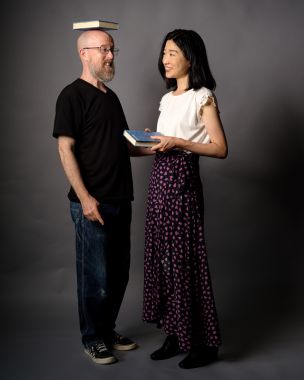
While Japanese-to-English literary translators have traditionally worked alone, Reiko and Doc make a well- balanced pair to take on Japan’s literary titans. Reiko brings her native Japanese language and her deep knowledge of Japanese literature and culture while Doc brings his English writing and editing experience. The pair engage in a literary back-and-forth to produce their translations, which have also included Wish Fulfilled by Osamu Dazai and Botchan by Natsume Soseki. Reiko brings Doc initial translated paragraphs, which Doc edits and sends back to Reiko, who corrects and updates for additional nuance in Japanese. This then gets sent back to Doc for English re-construction, and so on and so forth. “Even one sentence can take a day because we keep talking about it,” says Reiko.
This fastidious dedication to craft comes from the simple but honest root of the duo’s mission for producing translations: they want to share great Japanese stories with English-language readers. Today, they run Maplopo together, an online site that brings new Japanese-to-English story translations to readers. They’re also starting up Maplopo Schoolhouse, an online literature-based program developed by the pair to teach Japanese.
Up until this year, Doc and Reiko had day jobs, but now they’re officially moving into a full-time pursuit of literature from their home base in Kobe. The first Maplopo Schoolhouse cohort session, which began on June 1, walked attendees through Dazai’s story Daffodil paragraph by paragraph, pulling apart the grammar and nuance.
Maplopo was born when Doc and Reiko first met in Kobe. Reiko impressed Doc with her enthusiasm for trying to communicate what was so special about Atsushi Nakajima’s story Legend of the Master—which they later went on to translate together. Reiko began by showing Doc translated sentences from stories she loved, which he edited.
Before long the two were translating stories together, and wanted beta readers. Doc used his active Twitter following and assistance from Anne at BSD Bibliophile, an online Bungo Stray Dogs community, to start up an early readership for Maplopo.
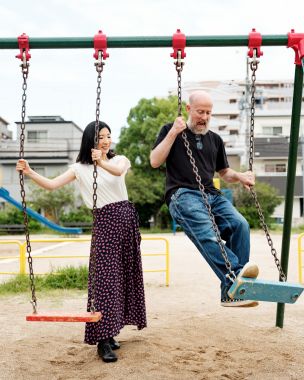
“We just did this for fun,” says Doc. “We went out and did translation for nobody but ourselves. Every one of these translations is like one of our babies.” But to the couple’s surprise, their Dazai translation sold surprisingly well enough on Amazon. They managed to put together a mailing list and started to turn their joint translation initiative into a real business.
The pair has had to focus on translating authors whose work is in the public domain. In Japan, that typically means the author has passed away more than fifty years ago. Doc and Reiko have pursued opportunities with more recent authors, but Japanese publishers are extremely tentative to give out any translation rights without guaranteed profits clearly on the horizon.
They were especially close to getting permission to translate Tanabe Seiko, one of Reiko’s favorite authors. Reiko managed to get in contact with the rights holder, Tanabe’s niece, who was enthusiastic about their prospective translation. But after contacting the publisher, she received word to not give out the permission.
“The general message was that the publishing company wanted to be able to protect future purchasing sales rights, so if we translated something, it might dilute a future offer,” Doc says. Similar hurdles got in the way of
a potential Yoko Ogawa translation despite another favorable connection. It goes to show that substantial barriers to obtaining translation rights exist for smaller translators and indie publishers. Even if an author is enthusiastic about a potential translation, the publisher retains the ability to shut translations down in the hunt for profit.
Japanese-to-English literary translators typically face the burden of finding and pitching prospective titles to publishers—a daunting task that often goes unpaid. Being at the mercy of what the publisher believes will and will not rein in a profit on top of that serves as a second gut punch. While initiatives from the Japanese government and independent foundations can provide funding to encourage the translation of literary works, these funds are intensely competitive, and as a result, tend to go to the most established authors and translators.
Even if an author is enthusiastic about a potential translation, the publisher retains the ability to shut translations down in the hunt for profit.
While Doc and Reiko’s independent status has posed hurdles for obtaining rights, it’s also what makes their process and results so unique. “We read every instalment of each draft aloud,” says Doc. “I take a recording while reading, and then we listen together.” Reiko also records herself reading the Japanese, and listens while looking over the English version. That enables her to see where the rhythm of the English is off and helps the couple further refine their sentences.
Fortunately, this intense detail orientation doesn’t seem to pose problems for them as a couple running a business together. “Reiko is from a temple family, and I grew up in Catholic school, so we’re both really patient—that helps a lot,” says Doc. “I couldn’t dream of a better situation than waking up, sitting next to [Reiko], and working all day long.”
Right now, the pair is throwing all their efforts into building up Maplopo Schoolhouse. It’s a massive effort with hundreds of videos, all sorts of quizzes and study tools, and voice recordings in both languages, which Doc says he anticipates will take them the rest of the year to finish.
Above all, the pair’s intensive translation process and chemistry speaks to the joy, learning, and love that literature can spark. “Doc asks questions that make me think of things I’ve never thought of before,” Reiko says. “The process is fun.” Doc and Reiko’s meeting was fateful not just for the couple themselves, but for an English speaking readership increasingly intrigued by Japanese literature—who now has Maplopo to guide them through it.
More Information
Discover new Japanese-to-English short story translations and learn Japanese with Maplopo Schoolhouse via this link.





